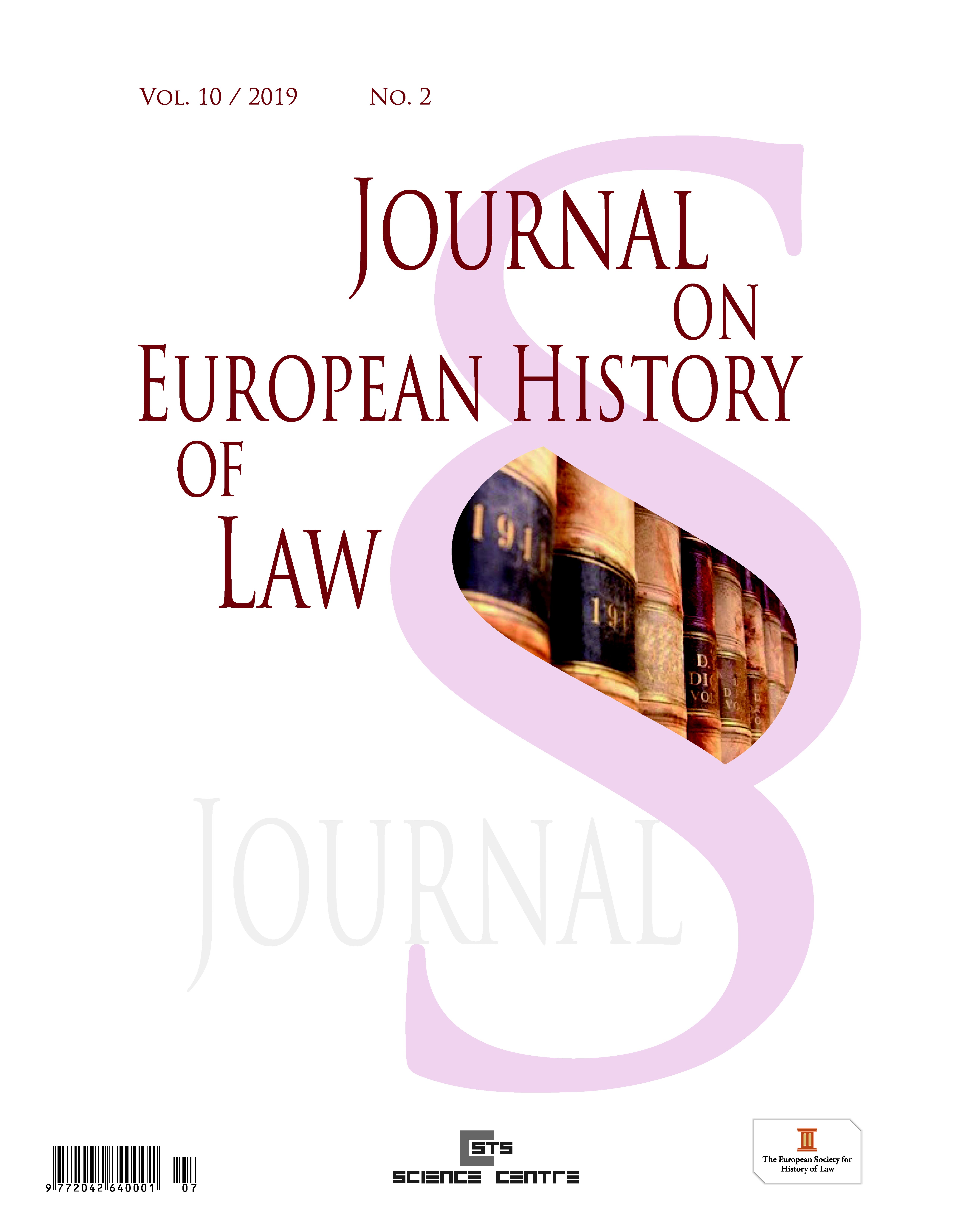The Origins of Homicide Legislation in Ancient Greece
The Origins of Homicide Legislation in Ancient Greece
Author(s): Georgios Tzeferakos, Marina Skourteli, Alexandra Palli, Athanassios DouzenisSubject(s): History, Law, Constitution, Jurisprudence
Published by: STS Science Centre Ltd
Keywords: Homicide; Legislation; Ancient Greece; Solon; Draco.
Summary/Abstract: The term ancient Greek law refers to the legal systems that were valid in Greek areas between 1200-300 B.C., from the Dorian invasion until the Hellenistic era. During this period, the organization of Greek cities thrived and Laws began to develop. Formal recording of the Laws is considered as the apex of city-state organization since written law constitutes a fundamental element in the formation of a state entity. The most important changes during the aforementioned period were the transition from an unwritten theocratic, ‘sacred’ law to the recording of laws derived from peoples’ legislative power, the extension of judicial power beyond the political and religious elites to wider social strata and the replacement of the principle of tautopathia (direct and equivalent revenge) with the principles of eterodikia (a third party issuing the final decision regarding a dispute) and timisis (taking into consideration subjective and objective parameters in the criminal act and of the perpetrator). Although it is unclear whether the administration of justice during ancient Greek times derived from a multitude or a single unified legal system, it has nevertheless marked a significant, democratic shift towards the conceptualization, foundation and evolution of modern moral, ethical and judicial systems.
Journal: Journal on European History of Law
- Issue Year: 10/2019
- Issue No: 2
- Page Range: 56-60
- Page Count: 5
- Language: English
- Content File-PDF

